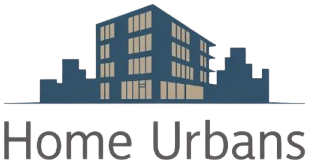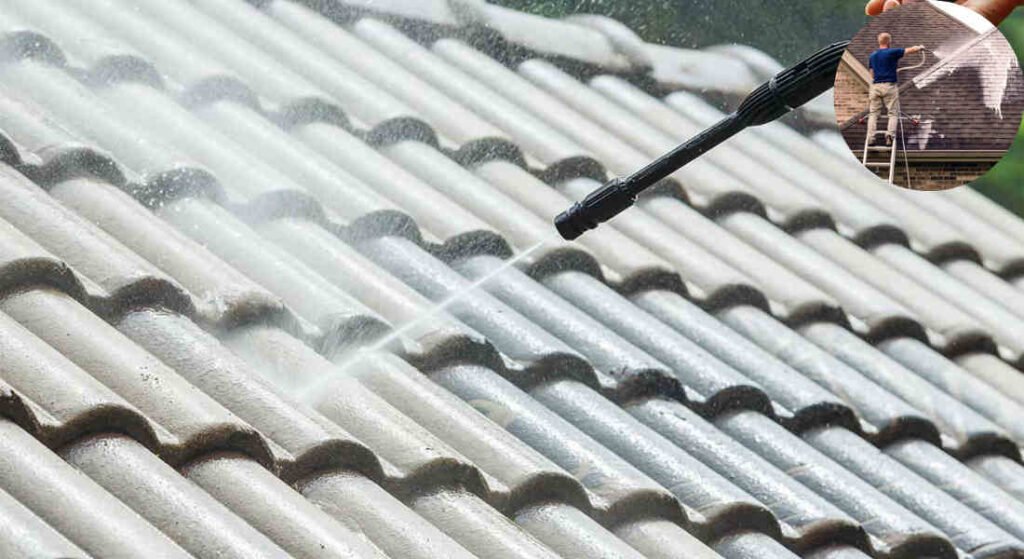Maintaining your home’s roof is one of the most critical tasks to ensure your property stays in top shape. A well-maintained roof protects your home, boosts curb appeal, and can even increase property value. But when dirt, moss, algae, or stains start to build up, many homeowners ask themselves: Should I power wash my house roof?
Understanding Roof Cleaning: What Is Power Washing?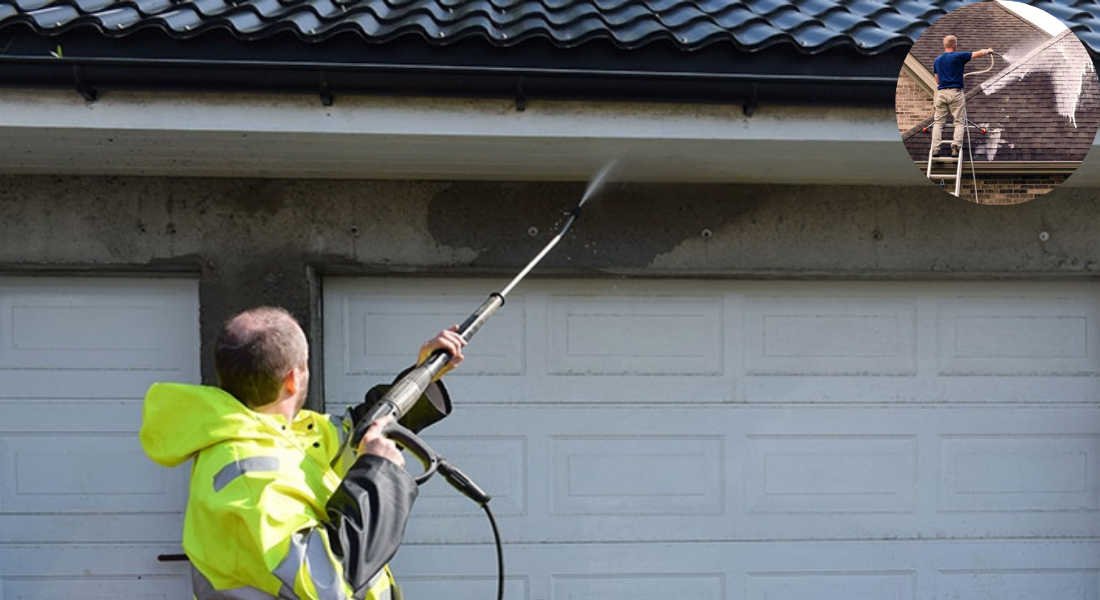
To make an informed decision about roof cleaning, it’s essential to understand what power washing is and how it works.
What Is Power Washing?
Power washing is a cleaning method that uses high-pressure water jets to remove dirt, algae, moss, and other debris from surfaces. It’s commonly used on driveways, sidewalks, and decks for its ability to clean stubborn grime quickly.
However, when it comes to roofs, power washing can pose challenges. It’s important to distinguish it from:
- Pressure Washing: Similar to power washing but uses unheated water.
- Soft Washing: A gentler method that uses low-pressure water combined with cleaning detergents.
Why Do Homeowners Consider Power Washing Their Roofs?
The appeal of power washing lies in its immediate results. A quick blast of high-pressure water can make a roof look almost brand-new. Here are some common reasons homeowners turn to power washing:
- To remove unsightly moss, algae, or mold.
- To enhance curb appeal before selling a property.
- To prevent damage caused by organic growth over time.
Types of Roofs and How They Respond to Power Washing
Understanding the material of your roof is crucial before applying any cleaning method. Different roofing materials respond differently to high-pressure water. Common roof types include:
- Asphalt Shingles: Most common but prone to damage under high pressure.
- Cedar Shake: Delicate and prone to splintering with aggressive cleaning.
- Slate or Clay Tiles: Durable but can crack or shift under high pressure.
- Metal Roofs: Often more resistant but still require caution.
Should I Power Wash My House Roof? Pros and Cons Explained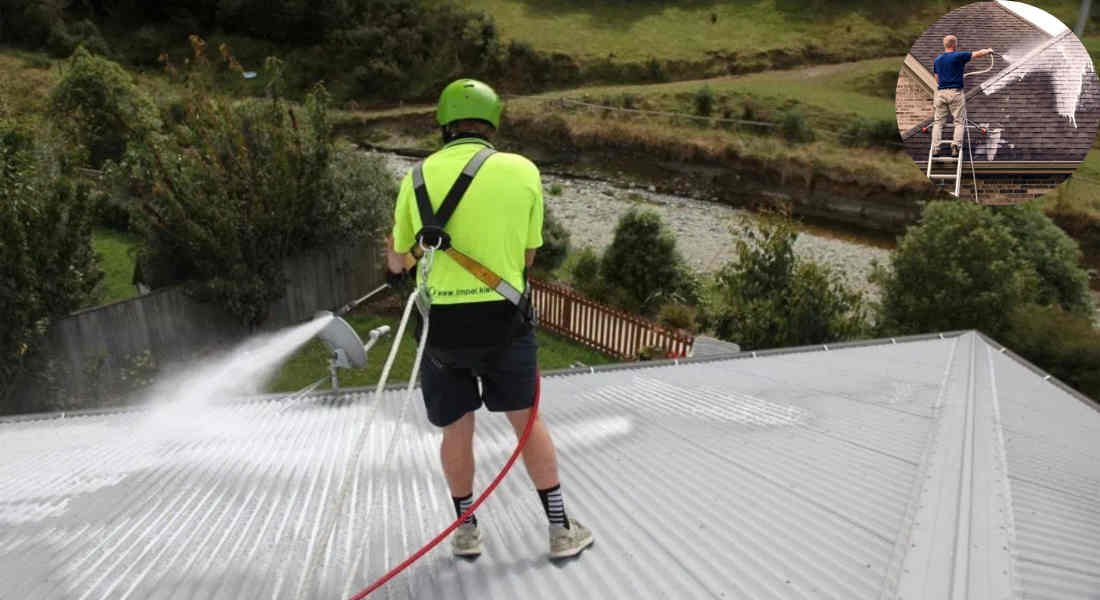
The idea of power washing your roof can seem like an easy solution, but it has both advantages and disadvantages. Let’s break it down.
Pros of Power Washing Your Roof
- Effective Dirt and Stain Removal
- Power washing can quickly blast away years of dirt, moss, algae, and mold, leaving your roof looking clean and fresh.
- Improves Curb Appeal
- A clean roof can significantly enhance the overall appearance of your home, making it more appealing to visitors and potential buyers.
Cons of Power Washing Your Roof
- Risk of Damage
- The high pressure used in power washing can strip away the protective granules on asphalt shingles or crack delicate tiles, leading to premature wear and leaks.
- Water Intrusion
- Power washing can force water under shingles or tiles, causing mold growth, structural damage, and even leaks inside your home.
- Short-Term Results
- While power washing removes visible growth, it doesn’t address the root cause of moss or algae. These can quickly return if not properly treated.
- Safety Concerns
- Cleaning a roof with a power washer can be dangerous for untrained individuals due to slippery surfaces and high heights.
- Voided Warranties
- Some roofing manufacturers explicitly state that power washing voids the roof’s warranty, leaving you unprotected in case of future issues.
Why Power Washing Can Be Harmful to Your Roof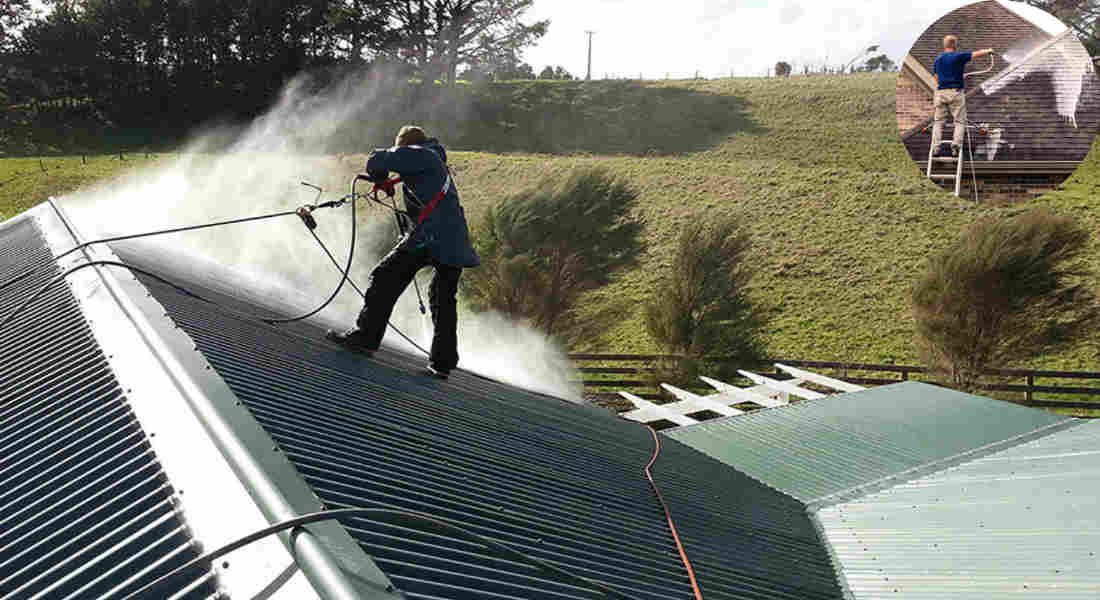
It’s essential to understand why power washing isn’t always the most effective option for maintaining your roof.
High-Pressure Damage
Roof shingles, especially asphalt ones, are designed to withstand natural weather elements like rain and wind—not the intense pressure of a power washer. This pressure can:
- Strip away protective granules.
- Crack or break clay and slate tiles.
- Weaken the roof’s underlying structure.
Water Intrusion Risks
When water is forced under shingles or tiles, it can seep into your home’s structure. This can lead to:
- Mold and mildew growth.
- Damage to the roof underlayment.
- Compromised structural integrity over time.
Delicate Roof Materials
Most pressure washers are not designed to handle the delicate surfaces of roofs. Using them can do more harm than good, especially on older or more fragile roofs.
You may also read (how to understand cma in house real estate).
Safer Alternatives to Power Washing Your Roof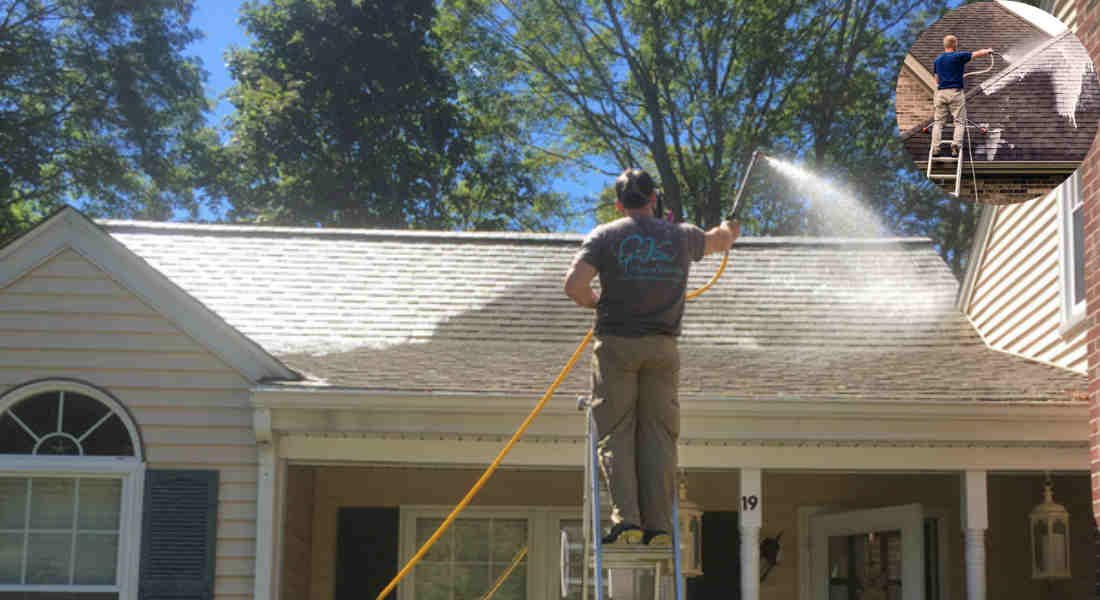
If power washing poses such risks, what are the safer options? Here are some reliable alternatives to consider:
Soft Washing
Soft washing utilizes low-pressure water combined with biodegradable detergents to clean your roof gently.
- Benefits:
- Safer for all types of roofing materials.
- Effectively kills algae, moss, and mold at the root.
- It provides longer-lasting results compared to power washing.
Manual Cleaning
For those who prefer a DIY approach, manual cleaning methods can work well.
- Use a leaf blower to remove loose debris like leaves and twigs.
- Gently rinse with a garden hose to clean dirt and light stains.
Professional Roof Cleaning Services
Hiring professionals ensures that your roof is cleaned with the proper methods and tools. Experienced cleaners can assess your roof’s condition and use techniques that minimize damage while achieving outstanding results.
How to Decide If You Should Power Wash Your Roof
Before making any decisions, it’s essential to consider a few factors:
- Assess Your Roof’s Condition
- Is your roof old or fragile?
- Are there signs of damage or wear?
- Consult a Professional
- If you’re unsure, consult a reputable roofing professional to assess your roof’s needs and recommend the most suitable cleaning method.
- Evaluate Moss and Algae Buildup
- If moss and algae are minimal, gentler cleaning methods, such as soft washing or manual cleaning, may be sufficient.
- Check Your Roof Warranty
- Review your roof’s warranty terms to ensure cleaning methods won’t void coverage.
Best Practices for Roof Cleaning
Timing
The best times to clean your roof are early spring or fall when weather conditions are generally mild and conducive to cleaning.
Choose the Right Cleaning Solutions
Always use cleaning products specifically designed for your roof type. Biodegradable detergents are ideal for soft washing.
Safety First
- Use proper safety equipment, including harnesses and non-slip shoes.
- If you’re uncomfortable working at heights, hire a professional.
Regular Maintenance
Prevent heavy buildup by trimming overhanging branches, cleaning gutters, and addressing minor issues before they worsen.
You may also read (do roof turbines help cool your house).
